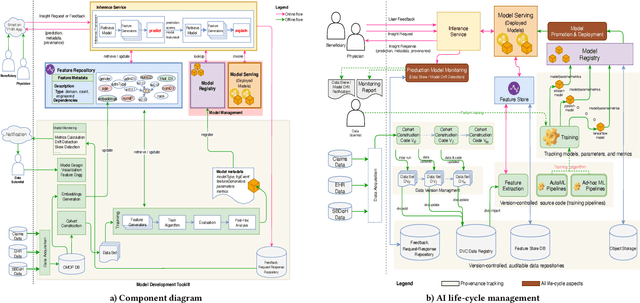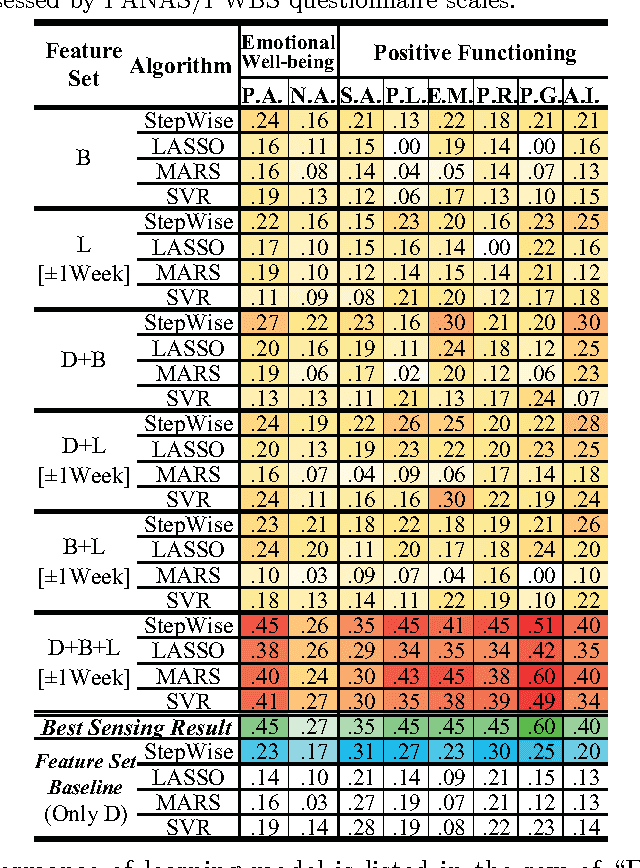Bibo Hao
A Canonical Architecture For Predictive Analytics on Longitudinal Patient Records
Jul 24, 2020
Abstract:Many institutions within the healthcare ecosystem are making significant investments in AI technologies to optimize their business operations at lower cost with improved patient outcomes. Despite the hype with AI, the full realization of this potential is seriously hindered by several systemic problems, including data privacy, security, bias, fairness, and explainability. In this paper, we propose a novel canonical architecture for the development of AI models in healthcare that addresses these challenges. This system enables the creation and management of AI predictive models throughout all the phases of their life cycle, including data ingestion, model building, and model promotion in production environments. This paper describes this architecture in detail, along with a qualitative evaluation of our experience of using it on real world problems.
Sensing Subjective Well-being from Social Media
Aug 28, 2014



Abstract:Subjective Well-being(SWB), which refers to how people experience the quality of their lives, is of great use to public policy-makers as well as economic, sociological research, etc. Traditionally, the measurement of SWB relies on time-consuming and costly self-report questionnaires. Nowadays, people are motivated to share their experiences and feelings on social media, so we propose to sense SWB from the vast user generated data on social media. By utilizing 1785 users' social media data with SWB labels, we train machine learning models that are able to "sense" individual SWB from users' social media. Our model, which attains the state-by-art prediction accuracy, can then be used to identify SWB of large population of social media users in time with very low cost.
 Add to Chrome
Add to Chrome Add to Firefox
Add to Firefox Add to Edge
Add to Edge